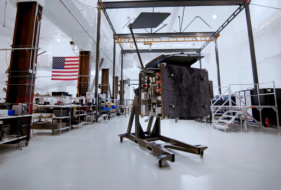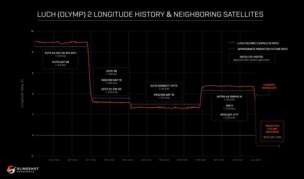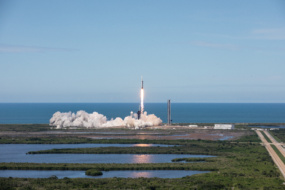Astranis, an SF-based GEO broadband startup, has successfully deployed its first satellite in orbit to begin providing capacity over Alaska.
“Our MicroGEO satellites will help get millions of people connected to the internet through our commercial customers, and importantly they are a new tool in the toolbox for the U.S. Department of Defense as it increases the resiliency of its fleet of satellites on orbit,” CEO John Gedmark wrote in a blog post.
Targeting GEO
In a world where many are looking to deploy large constellations in LEO to supply low-latency broadband, Astranis is taking the road less traveled, looking to supply more targeted, higher-bandwidth chunks of capacity using small GEO birds. Its MicroGEO design is ~1/20 the size of a traditional GEO satellite (about the size of a stove, for those trying to picture it), and rings in at ~1/10 the cost.
Enter Arcturus: Astranis launched its first MicroGEO satellite, Arcturus, as a secondary payload riding on the Viasat-3 Falcon Heavy mission last month. After launch, the satellite successfully reached its orbital slot, then connected a gateway in Utah with user terminals in Alaska using its software-defined radio payload.
Arcturus will begin providing broadband service in Alaska for Astranis’ customer, Pacific Dataport. “At full capacity, it will more than triple the amount of satellite bandwidth available in the state, bringing prices down and helping connect the 39% of the state that still lacks affordable access to reliable broadband internet,” Gedmark wrote.
Up next: Now that its first satellite is up and running, Astranis has big plans on the horizon.
- Four more MicroGEO satellites are manifested on a dedicated Falcon 9 flight later this summer.
- Looking ahead to 2024, the company is looking to increase its manufacturing capacity to reach 2 satellites per month.
- Astranis is hoping to have 100 MicroGEO satellites in orbit by 2030, Gedmark told Payload in February.




